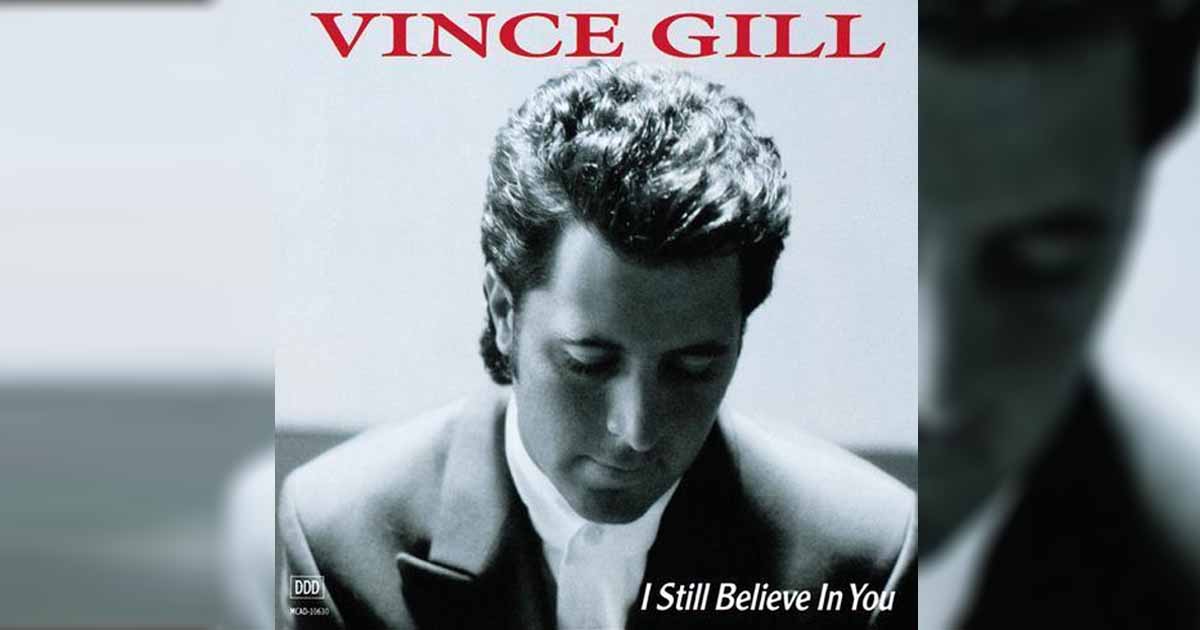What do you feel when a musician decides to dedicate a song for you? Well, Vince Gill had another thing in mind when he wrote the song “I Still Believe in You.”

Musicians always have a message when they write and record a song. The singer Vince Gill decided to use this chance to ask for an apology to his first wife, Janis Oliver. The apologetic tune was written because Vince had a squabble with her and he thought he could make it up to her through the song.
About Vince Gill’s “I Still Believe in You”
Vince Gill is a talented singer and songwriter. In fact, he became the only performer to win five consecutive Country Music Awards for Best Male Vocalist, taking the trophy from 1991-1995.

With his song “I Still Believe in You,” he won a Grammy Award for Country Song of the Year in 1993. Jarvis, Vince Gill’s partner in writing the song, recalled the penning of the tune to Nashville Hype:
“Vince and I talked about writing backstage at one of the CMA shows,” he remembered. “We finally booked an appointment on a Sunday at my house. He forgot to tell his wife, and they had a bit of a spat about it, apparently. So he was in the mood to write a make-up song. I pretty much had the music idea fleshed out before he got there. I would say he wrote 90% of the lyrics while I wrote about 90% of the music.”
Lyrics Breakdown
Everybody wants a little piece of my time
But still I put you at the end of the line
How it breaks my heart to cause you this pain
To see the tears you cry fallin’ like rain
If you listen to the lyrics of the track, you know that it truly deserved the Grammy Award. There is a burst of feelings and emotions poured into the song. Furthermore, the mixture of regret, pain, and a promise to be better made it so captivating.

Vince Gill is a great lyricist, and it is shown in the song. In fact, Janis Oliver had conflicting feelings whenever she heard the record. She knows the genuine emotions behind the track so it confuses her when she listens to it now that they are separated.
This is the kind of music that musicians should never forget. It must show honest emotions with a compelling story so that the audience can relate to it.


















